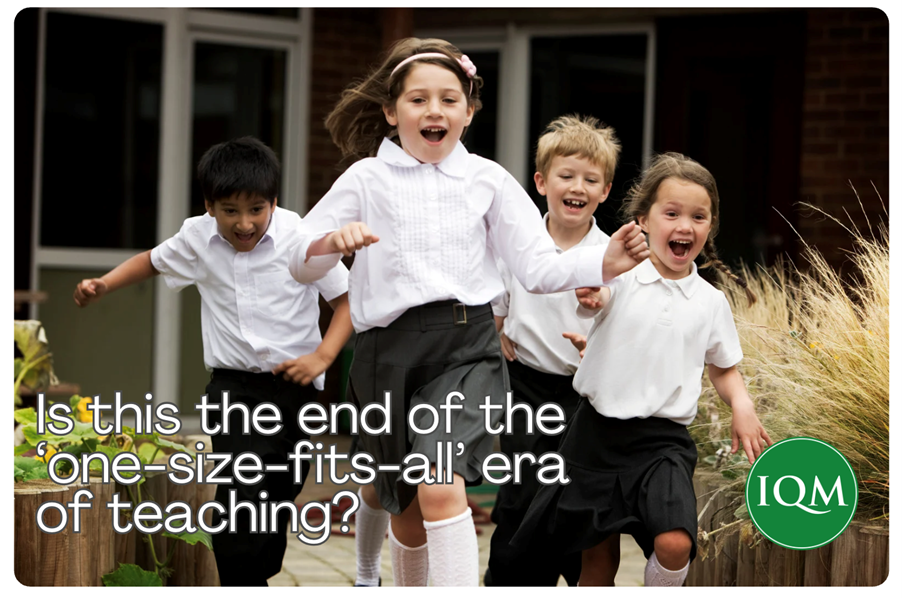Who is IQM?
IQM is the only national inclusion award in the UK. For over 20 years and in over 20 countries, schools, MATs and Local Authorities use the Inclusion Quality Mark to recognise exemplary inclusive practice.
Get in touch for your FREE school information pack today.
Centre of Excellence for The Willows School Academy Trust
July 21, 2023
The Willows School Academy Trust has achieved the Inclusive School Award with Centre of Excellence.
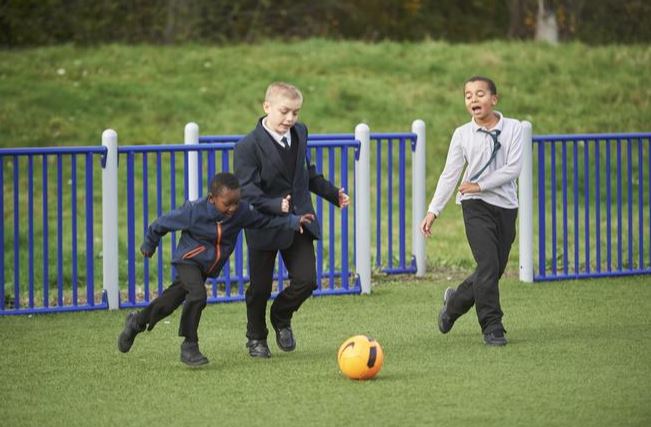
Diverse School
The Willows School Academy Trust is a standalone Trust in Hayes in the London Borough of Hillingdon. It is a small educational needs school for children who are in receipt of an Educational Health and Care Plan (EHCP), with the main need being identified as Social, Emotional and Mental Health (SEMH). The school’s pupils come from eight local authorities and although they are a diverse school with pupils from a variety of ethnic backgrounds, most pupils are white British. All pupils have an EHCP, 45% of the pupils are eligible for Free School Meals (FSMs) and 2% of the pupils have English as an Additional Language (EAL). The school has grown and will be increasing again in the next academic year. Currently, there are seven classes and next year there will be six. The school begins at Year 2.
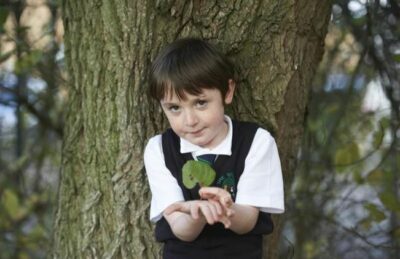
Rooms in the school are on one side of two long corridors. The corridors have bright displays focusing on curriculum areas, and use is made of the space to offer, for example, a reading area and a friend’s bench which is covered in artificial grass.
There is a Pupil Voice Box on the wall where pupils can post their questions and concerns if they feel they are unable to voice them. The corridors provide a welcoming feel to the building. The classrooms are all organised in a similar way. Each room has its own reflection area that pupils can go to and use when they need to and those spaces have a variety of equipment, books, soft seating, etc that pupils can use to help them to self-regulate. As well as this, each room has a Time Out space which is outside the classroom. Pupils are directed there by teachers. These spaces have soft seating but have less sensory stimulation.
Three Simple Rules
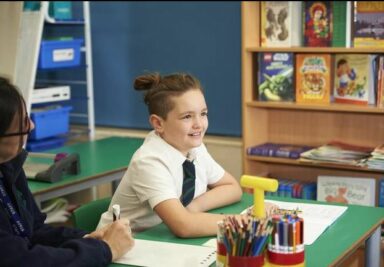
The classroom walls have the same displays. As well as the interactive learning displays which are different in each room, each pupil’s individual targets are displayed as well as the points chart. Pupils are awarded points for displaying positive responses to learning, such as good sitting, taking part in a group and good work. They can earn up to five points per session and these points are added up weekly and then become ‘money’ that the pupils could spend in the school shop. Our Assessor was lucky enough to see three pupils at the shop who spoke positively about what they had ‘bought’. The shop stocks a range of toys, and they are arranged in their ‘price’ order to help the pupils choose their toy.
The school rules are also displayed on the classroom walls; there are only three: To follow instructions; Be kind, polite and respectful to everyone; Keep your hands, feet and other objects to yourself.
These three, simple rules encompass all possible behaviours and are clearly known and understood by all pupils.
One class has some non-verbal, autistic pupils and that room has more sensory play and learning to meet the needs of the pupils. Our Assessor did not see any pupils in that class as they were out horse riding, but was very impressed by the calm, positive atmosphere in the other rooms. There are never more than 12 pupils in each class, with a teacher and three Teaching Assistants (TAs). Good working relationships were evident between staff and pupils and both staff and pupils were welcoming. The classes are mixed year groups apart from Year 6 where the approach is different in preparation for supporting them as they transition to secondary settings. Independence is encouraged and the Year 6 pupils are given more responsibilities.
Helpful Space for Pupils
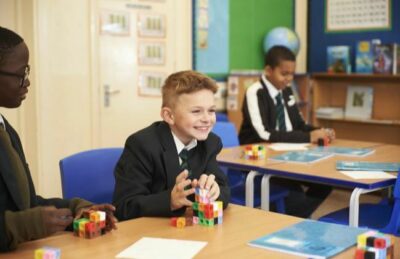
There is a play therapy room that has a wide range of toys on shelves and on the floor. If those toys do not meet the interest needs of the individual pupils, there is a stock room with even more that staff can use in their rooms as well as the therapist for the playroom. There is a soft play area for Key Stage 1 (KS1) pupils and this space is used as a treat for the pupils. This is a helpful space for the pupils. The cooking room is set up so that the work surfaces are at the right height for the pupils and good use is made for cross-curricular work in this room, for example, mathematics measuring work which becomes real when using and measuring ingredients. Our Assessor saw the large store cupboard and the Year 6 pupils have the responsibility for keeping this stocked. They go to the local Tesco to buy what is needed. They must have done a shop recently as it was full.
On a tour of the school our Assessor was told about the planned developments over the summer to develop and improve the environment, for example, a new classroom is being created by joining two spaces and a reading support area is being created by partitioning part of the reprographic room. Development is taking place outside as well as a veranda-type cover to be put up outside the classrooms and the paving improved so that tables can be used outside.
Like inside, the outside area has been developed to support individual needs. One playground has a soft surface and is marked up like a road which is good when they are using bikes but also is a good road safety teaching area. The school is lucky to have a huge field and has budgeted to gradually develop this area. It has climbing/swing equipment, a Multi-Use Games Area (MUGA) and a zip wire. In the corner of one playground is a butterfly/nature garden.
Positive about the School
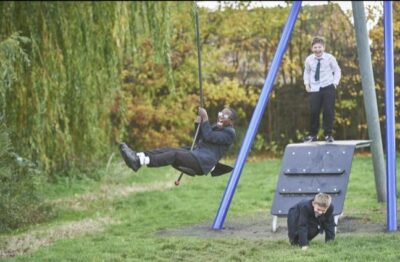
The pupils spoken to were positive about the school. Some had been to other schools before attending Willows and so could compare what it had been like before and is now. They feel safe in the school, know that they can speak to adults and that they are supported should they face individual challenges. Our Assessor was told that, “the teachers are amazing people who listen to us”. One boy who is a diabetic explained how he is supported to cope and is then able to manage himself. Our Assessor was also told how the pupils were listened to and that the breakfast menu was developed to include a wider range of foods.
The parents could not have spoken more highly about how the school had supported them and their children and like the pupils, they had experience of other settings. One said, “here you feel safe to be yourself. You feel that you can talk to staff, and you won’t be judged.” They described the atmosphere in the school as like being part of a family. Relationships with staff are good and they appreciated the regular coffee mornings that cover a range of topics.
One parent spoke about how at a previous school she was told that her son would never be able to read and write but now at Willows, he has started to do both. Another spoke about her child who was non-verbal but now is talking. Another explained that the Headteacher had said as her child started at the school, “he is heartbroken. We will mend his heart,” and she said that had indeed happened. There is undoubtedly so much support available to parents and as the Family Liaison Worker is part of the Senior Leadership Team (SLT), this highlights the importance the school places on the relationship with parents.
Sharing Good News

The staff spoke about how as a small team they all work together, supporting each other and they were clear that their wellbeing was looked after. The TAs had decided that they would like to have a ‘uniform’ and the school provides them with T-shirts, sweatshirts and waterproof jackets with the school logo on them. Staff are positive and model behaviour for the pupils. The pupils are known, and individual needs are shared with staff, and they told me how rewarding it can be to work there. There may be some challenges but it is good to see the pupils develop and how they can learn from the pupils. The aim is to keep the pupils safe and to develop their life skills. Using the International Primary Curriculum supports their understanding of issues facing them at home and for the world. Teachers keep in close contact with parents, phoning them weekly and using the home-school contact book. Real emphasis is put on sharing good news. Difficult conversations are handled sensitively, and parents certainly agreed with that.
Communication is Strong

The Governors know and endorse the inclusive work of the school. They recognise that communication in the school is strong. They value the de-escalation approach that is used by staff and spoke about the enrichment outside the classroom and how the school aims to meet individual needs and develop the whole child. They recognise that the staff are committed and willing to engage. The school does all it can to adapt to meet individual needs. Governors attend the school regularly and so can see what the school day is like.
The Headteacher and SLT have a clear vision of inclusion that is shared with and understood by all. The pupils and their individual needs are known and thought and care are taken to support pupils and parents. Positivity is apparent in all aspects of school life. Staff are friendly and welcoming.
Find out more about the IQM Inclusive School Award
If your school is interested in obtaining the IQM Inclusive School Award or you wish to talk to a member of the IQM team please telephone:
028 7127 7857 (9.00 am to 5.00 pm)
or email: admin@iqmaward.com for further details.
Want more information on the IQM Award? Click here to request your free IQM information pack
Other Posts

About IQM
The only national award for inclusion in the UK, IQM has been committed to recognising exemplary inclusive schools for over 20 years and in over 20 countries around the world. The three awards allow schools and organisations to celebrate their inclusive practice against nationally recognised framework.
Site Links
© 2026 Inclusion Quality Mark | website developed & cared for by digidoda

